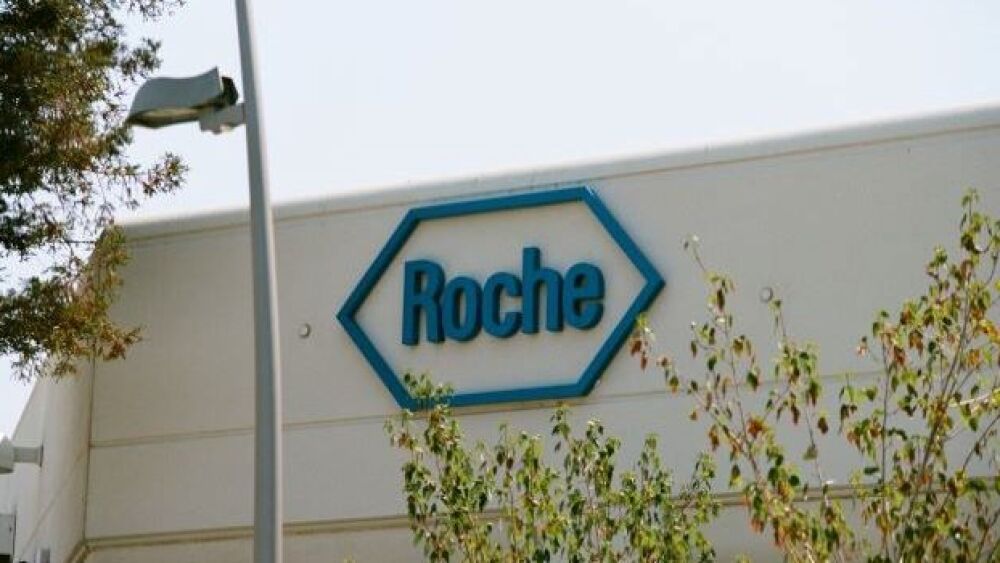In Roche’s 2021 annual report, the company detailed that group sales rose 9%, pharmaceutical sales up 3%, and diagnostics up a whopping 29%.
Smith Collection_Gado_Getty Images
In Roche’s 2021 annual report, the company detailed that group sales rose 9%, pharmaceutical sales were up 3%, and diagnostics up a whopping 29%. The company noted that it had halted a Phase III development program for etrolizumab for Crohn’s disease, as well as a few others in the middle of all financial news.
Roche’s big approvals in the fourth quarter included Susvimo and Vabysmo for age-related blindness in the U.S.; in Europe, Gavreto for a specific form of advanced lung cancer, Actemra/RoActemra for severe COVID-19 and Ronapreve for non-hospitalized COVID-19 patients and prophylaxis.
In the diagnostics arena, in the fourth quarter, the company noted approvals for its cobas 5800 molecular laboratory system, Avenio Edge sequencing sample preparation system, cobas pulse and cobas infinity edge digital ecosystem for clinical decision support and additional SARS-CoV-2 tests.
The company expects sales for 2022 to be stable or to grow in the low-single digits. And in what is a hopeful sign for the world but not necessarily for Roche’s bottom line, the company said it expects sales of COVID-19-related drugs and diagnostics to fall by approximately CHF 2 billion ($2.17 billion) with sales drops for biosimilars of around CHF 2.5 billion ($2.7 billion). Otherwise, group sales are projected to grow in the high-single digit range.
“We achieved good results in 2021,” stated Severin Schwan, Roche’s Chief Executive Officer. “The demand for our new medicines and diagnostics remains very high. I am particularly pleased with the progress of our product pipeline across several areas, including oncology, vision loss and neurological diseases. Based on our strong product portfolio in both divisions and the promising product pipeline, we are well-positioned for future growth.”
In August 2020, Roche announced mixed topline results for its Phase III program of etrolizumab in patients with moderately to severely active ulcerative colitis, an inflammatory bowel disease similar to Crohn’s disease. The drug hit the primary endpoint of inducing remission compared to placebo in two of three studies, but the drug missed the primary endpoint versus placebo as maintenance therapy in ulcerative colitis.
At the time, Dr. Levi Garraway, Roche’s chief medical officer and head of global product development, said, “We are disappointed with these results, because we know that people with ulcerative colitis need new treatment options. We are fully analyzing these data to learn more about how we might address the needs of people with this devastating disease. These studies were part of the largest clinical trial program ever undertaken in inflammatory bowel diseases, and we thank all the patients, investigators and healthcare professionals for their participations.”
The studies in Crohn’s disease with and without previous anti-TNF treatment was continuing in the Phase III BERGAMOT trial and open-label extension and safety monitoring study (JUNIPER).
Etrolizumab is a dual anti-integrin designed to selectively inhibit alpha4beta7 and alphaEbeta7 to control the trafficking of immune cells into the gut and their inflammatory effects on the lining of the gut.
Whatever data on these studies Roche observed, it wasn’t strong enough to throw more time and money at.
Roche also announced another Phase III program it was axing, RG6422, an oral COVID-19 antiviral it was developing with Atea Pharmaceuticals.
In Phase II, Roche was halting SPK-7001, a choroideremia gene therapy it was developing with Spark Therapeutics, and RG7992 for nonalcoholic steatohepatitis (NASH), and RG7835 for autoimmune disorders.





